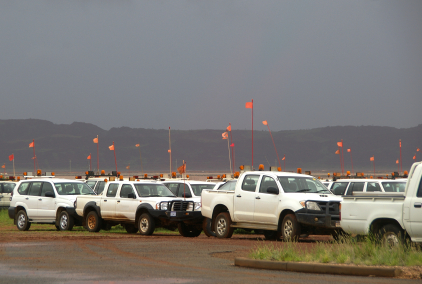Fleet Insurance
Who needs fleet insurance, what it covers , how to make sure the right people are on the policy and what it doesn’t cover.
You may need fleet insurance even if your “fleet” consists of only one vehicle. More than anything insurance companies place emphasis on how a vehicle is used. Insuring the wrong vehicle for the wrong purpose can result in claim denial.
If you use your car for personal use (which includes driving to and from work, but not use for work-related activities), then you need a standard personal auto insurance policy.
Insure Your Fleet Right
Vehicles specifically used for work purposes should be placed on fleet or commercial auto insurance policies. The vehicle doesn’t have to be a large truck, a service van or any other vehicle specifically designed for commercial use.
It can theoretically be any vehicle. Indeed since he or she uses it to travel to and from appointments, chances are your insurance agent’s own vehicle is covered by a commercial auto policy.
Fleet insurance legal requirements are for the most part the same as for personal auto insurance, however there are exceptions. For example, some states require significantly higher liability limits on taxicabs than on other vehicles. There may also be different rules for commercial concerns that take their vehicles across state lines. Consult with your insurance agent for more information.
Liability insurance on trailers isn’t required because trailers aren’t self-propelling. Instead, the liability coverage on the vehicle towing the trailer typically covers the trailer too. However, trailers must have any comprehensive and collision coverage written separately from other vehicles. In a commercial setting trailers are typically insured on a stated value basis. This is particularly true of older trailers or more simply constructed trailers such as flatbeds.
List Your Drivers in the Fleet
Personal auto insurance policies list drivers, but these policies commonly extend coverage to other occasional drivers without you having to think about it. This isn’t the case with fleet insurance policies. If a driver isn’t listed, there’s no coverage in a claim. Therefore it’s extremely important to make sure your fleet driver lists are kept up-to-date.
On commercial fleet auto insurance policies drivers are typically either accepted or rejected without a whole lot of underwriting. While exact rules vary from company to company for the most part your drivers need to be over 25, properly licensed to drive the vehicle in question and have decent driving records. A ticket or two is usually not a problem, but a particularly poor driving record can disqualify a driver.
Most commercial insurance companies will not accept a driver under 25 on a fleet policy, regardless of record. Drivers over 74 may be categorically rejected as well.
The Vehicle is Only Part of Fleet Coverage
Remember fleet auto insurance only covers vehicles. It generally does not cover tools, equipment, aftermarket accessories or anything else not factory installed and permanently bolted down. Your valuable tools and equipment need to be covered separately from perils such as theft and vandalism.
This is accomplished by another line of commercial property or casualty insurance called “inland marine” insurance. Like trailers, tools and equipment are typically on a stated value basis. In addition to stated value, underwriters will typically want information such as a short description, year of manufacture and any serial numbers to cover tools and equipment.
Fleet auto insurance also does not cover damages caused by you or your employees. Instead, this is addressed by commercial general liability or GL insurance. While not all commercial concerns need GL, many contractors and clients, particularly in construction-related fields, require proof of a GL policy called a “binder” before they will hire you or your company. Your insurance agent can help you find the correct coverages you need to protect yourself on the job.
Tags: popular
Trackback from your site.

